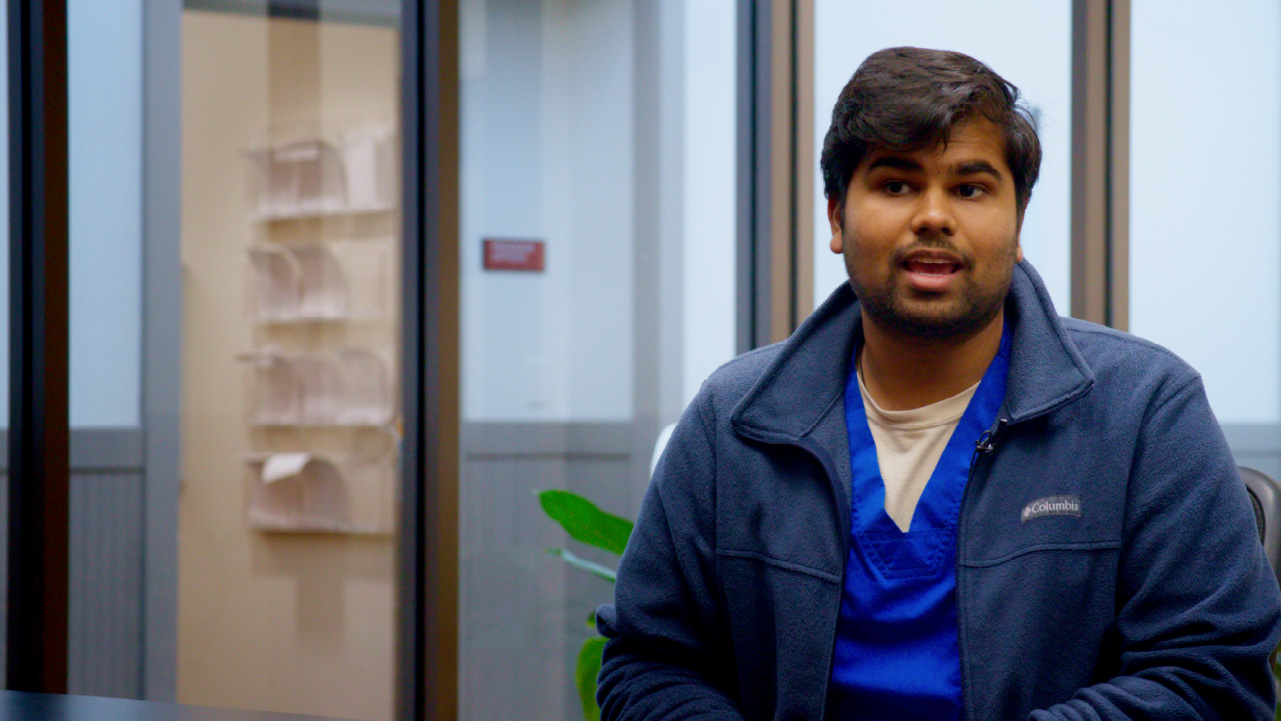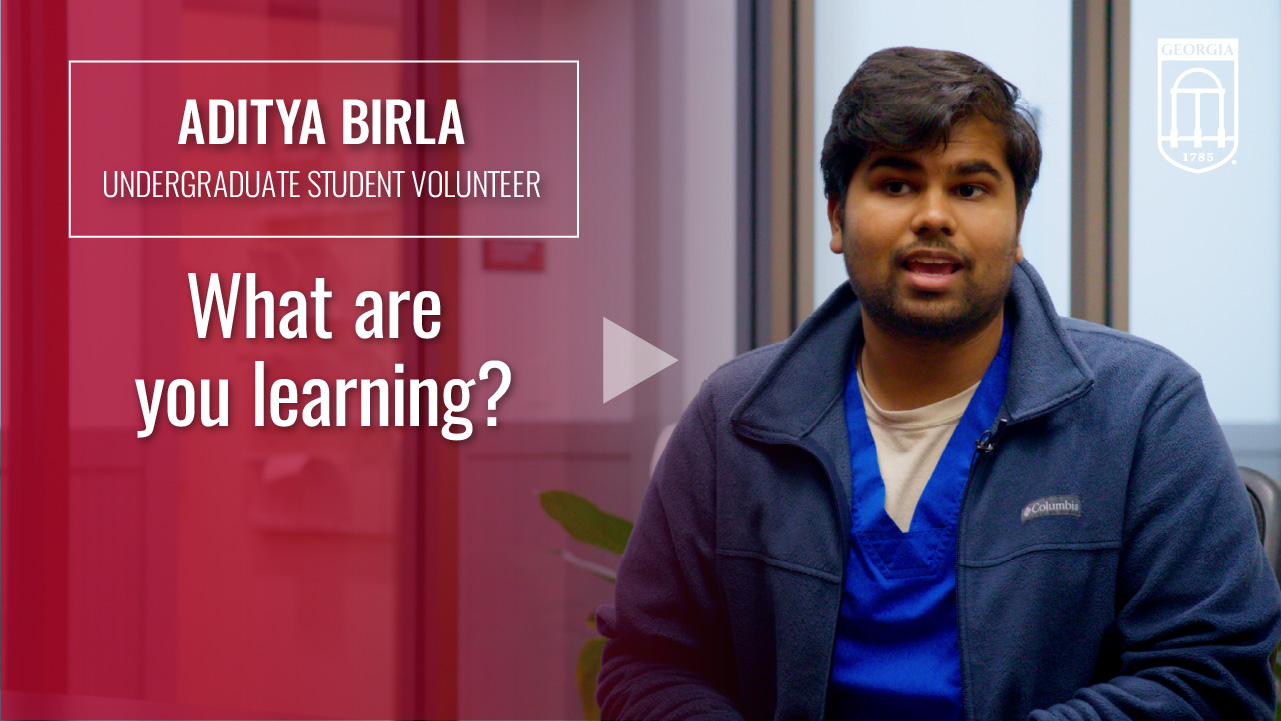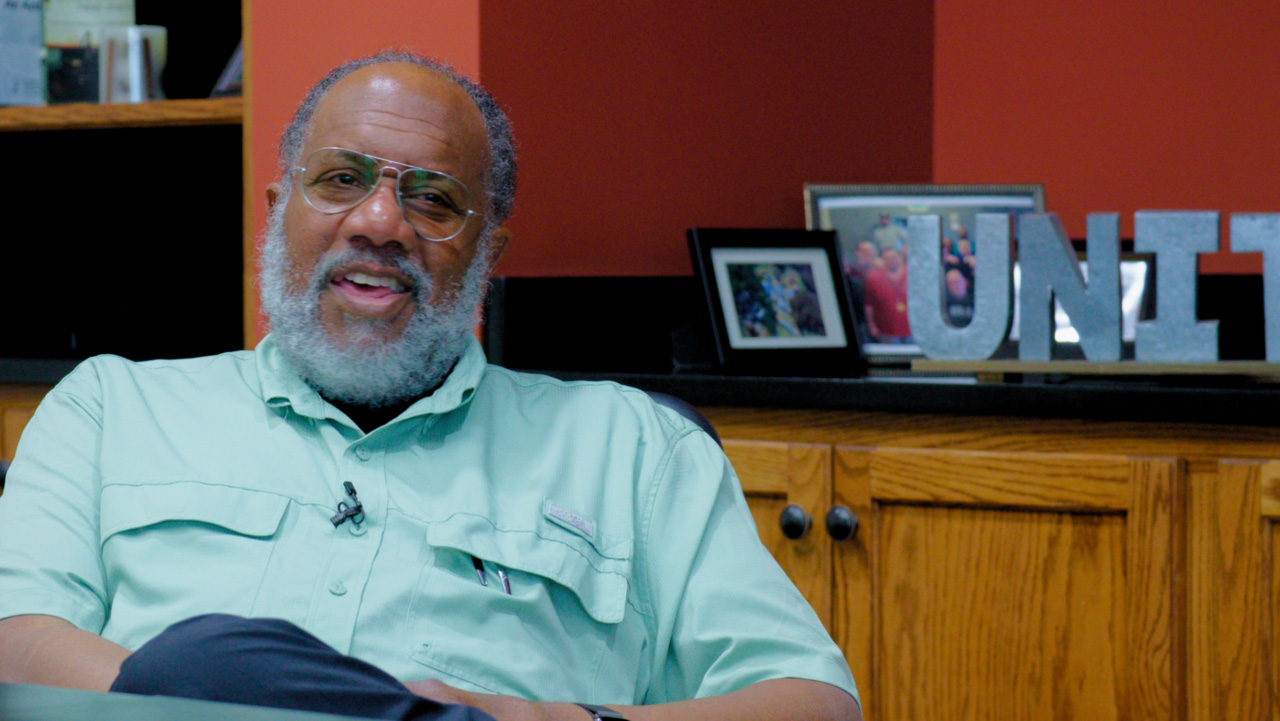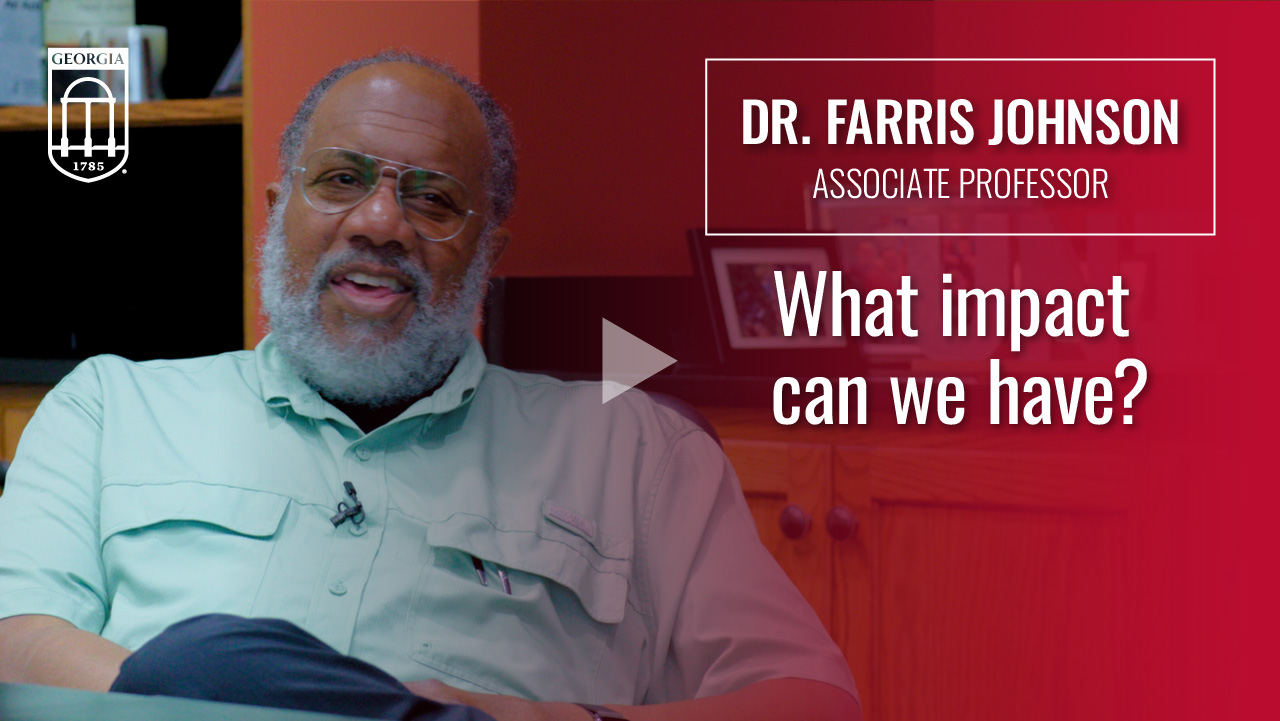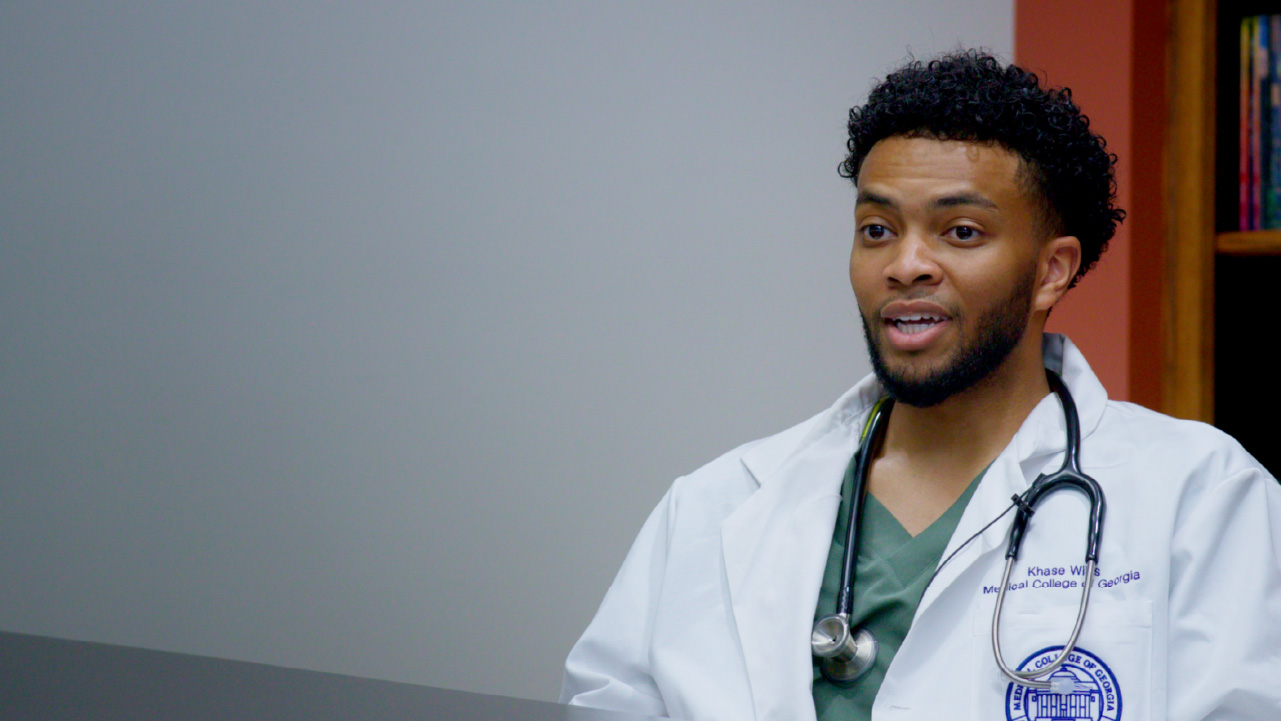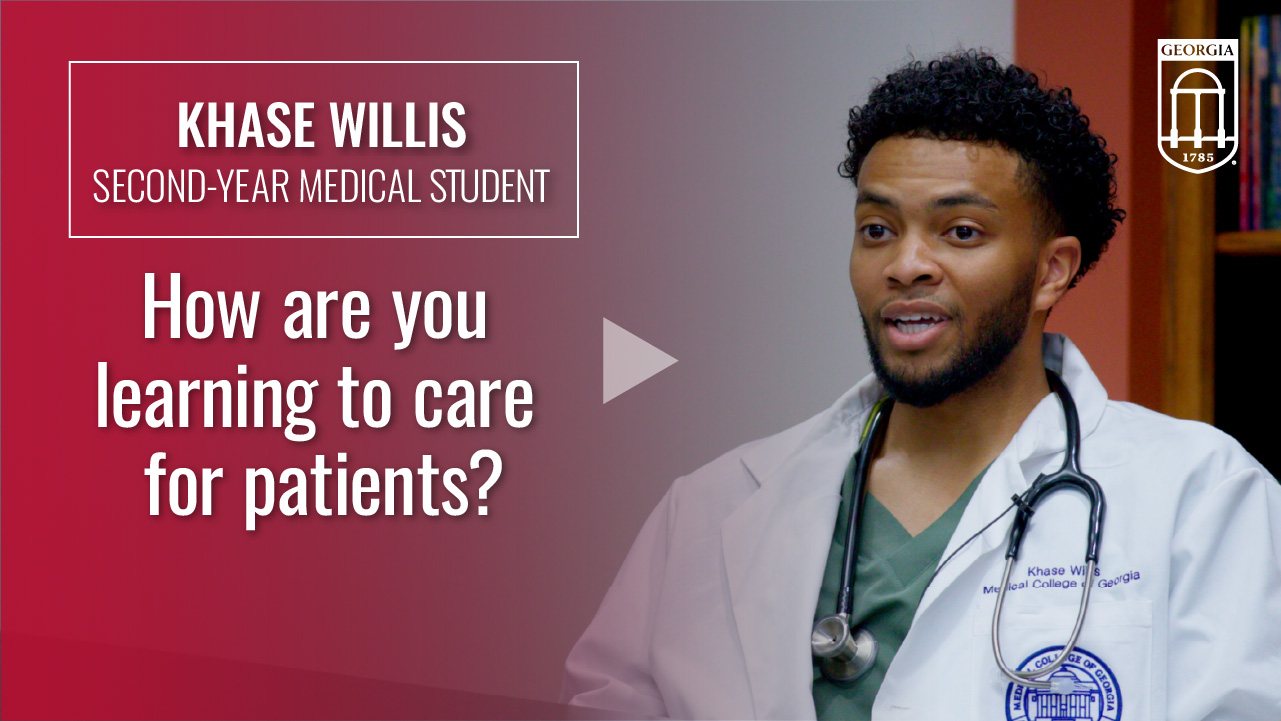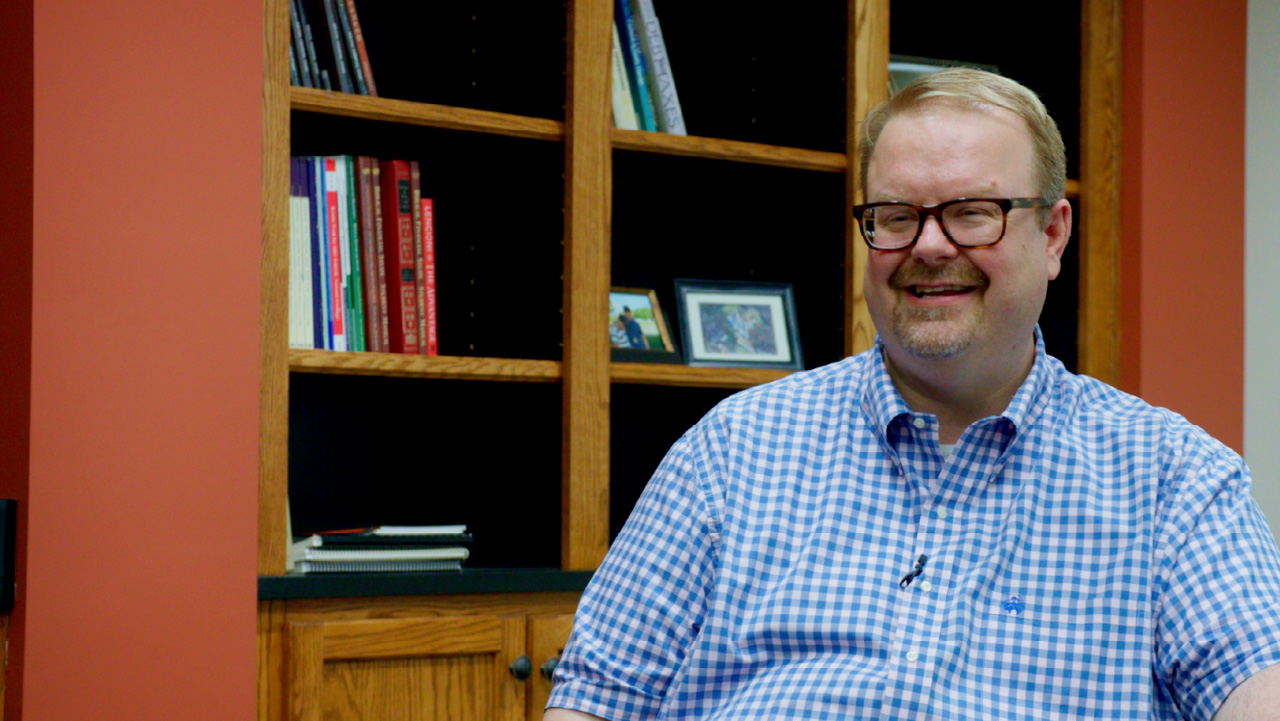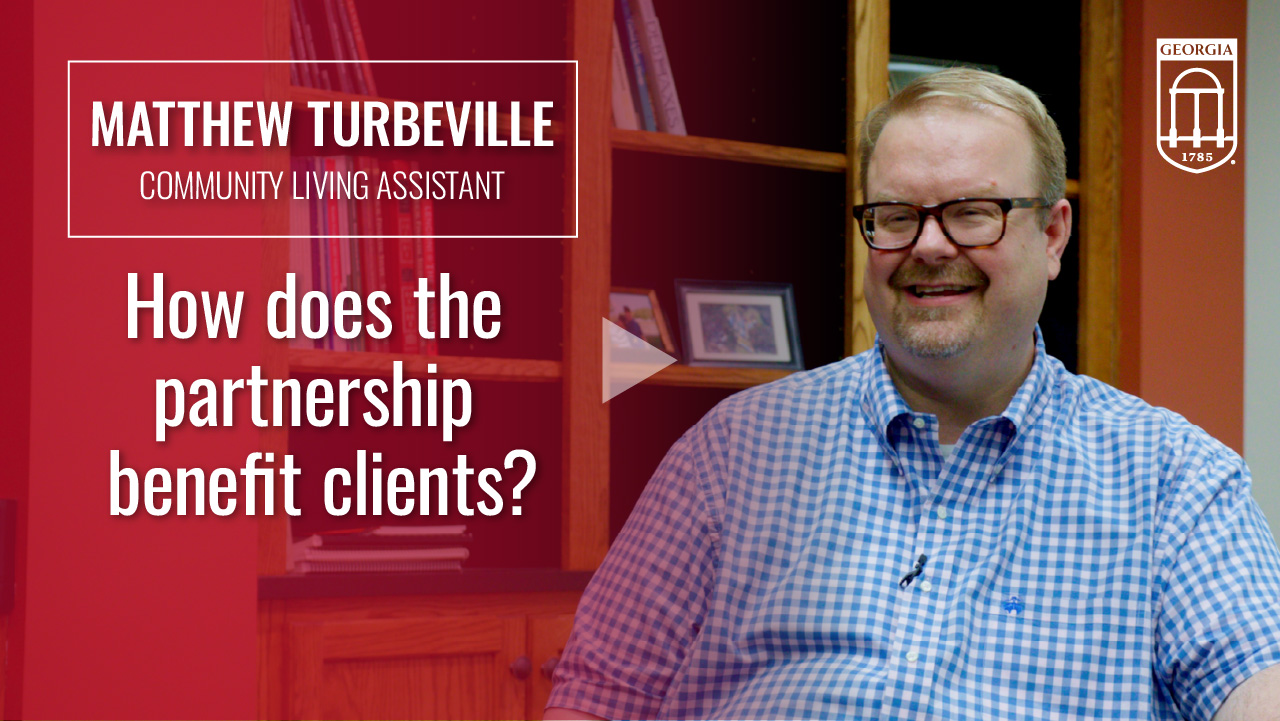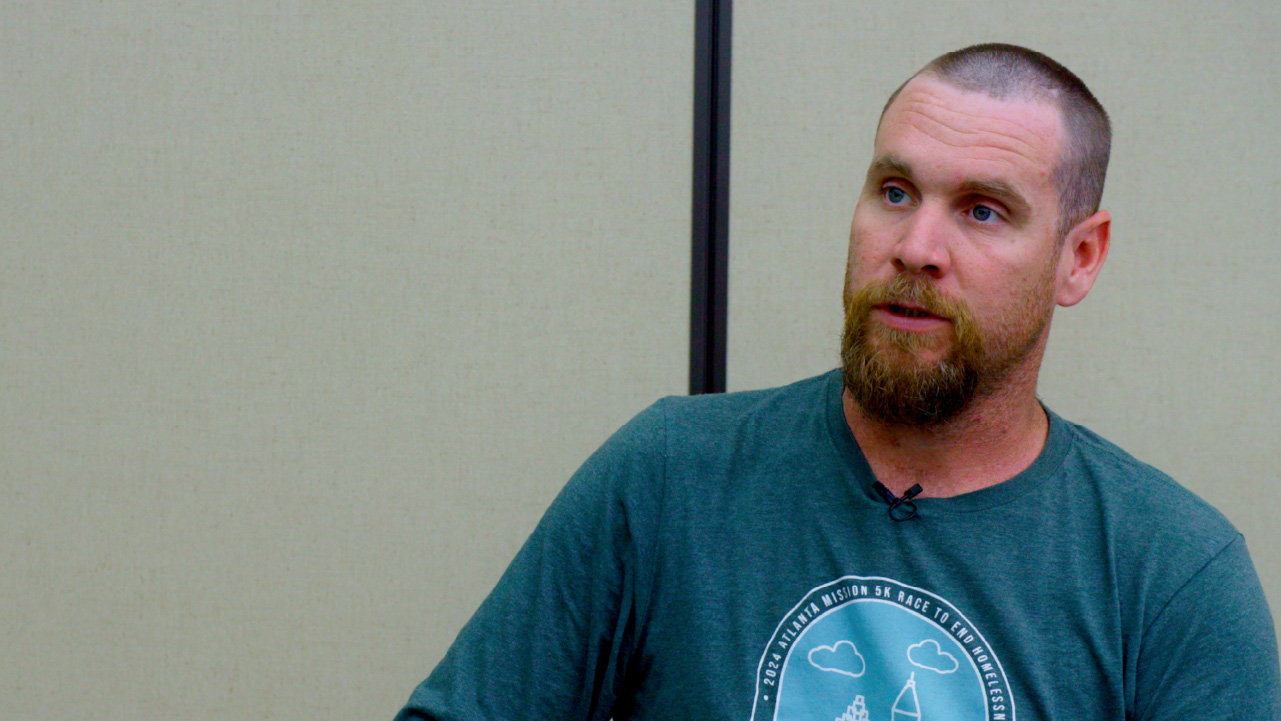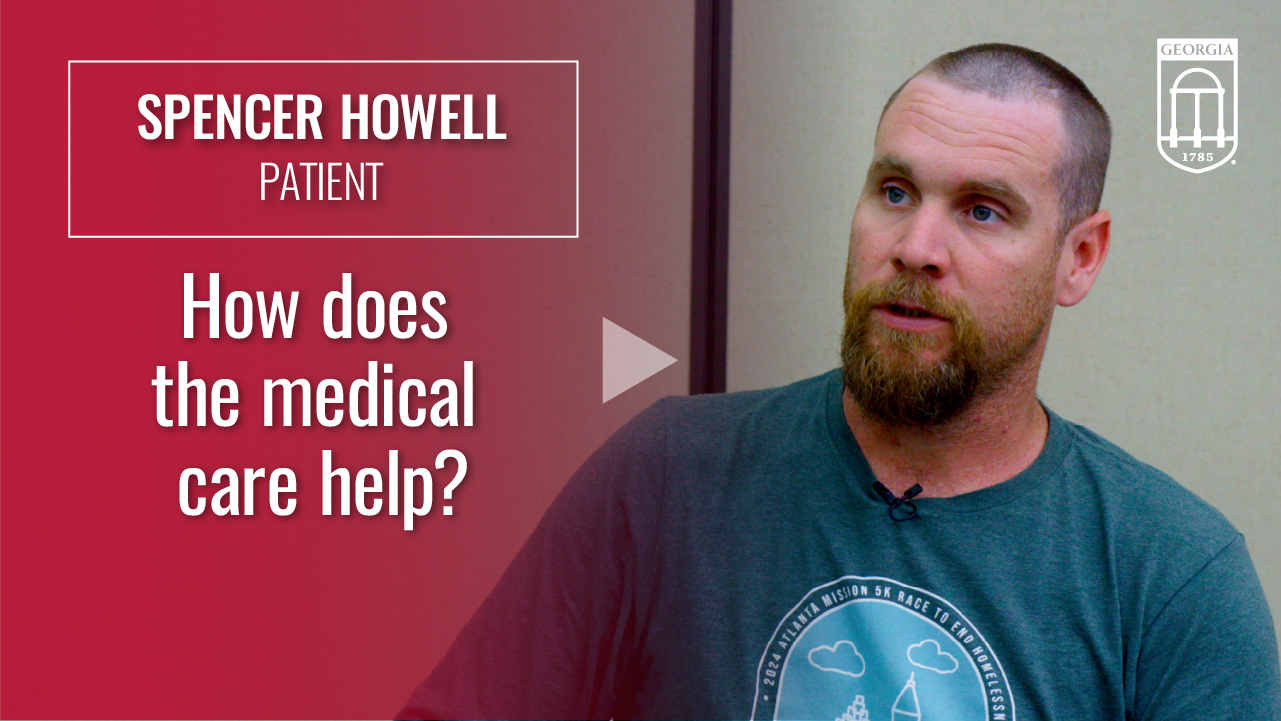Caring for Athens
Teams of medical students and physicians provide primary care to underserved patients.
File Under
Every other Monday afternoon, Dr. Farris Johnson and a team of students arrive at the Potter’s House, ready to provide primary medical care to the residents who are recovering from alcohol and drug addiction.
Johnson is an associate professor of family and community medicine with the Augusta University/University of Georgia Medical Partnership and teaches a service-learning course through the Medical Partnership’s Community and Population Health Athens Free Clinic program. This service-learning program teaches medical students in a two-year curriculum and places them at one of 12 community practice sites across Athens to deliver free care under the direction of physician faculty members.
“They start off with a lot of enthusiasm, and we teach them basic skills,” Johnson said. “By seeing patients, their knowledge starts to gel. We see their skills round out and in the second year really take off.”
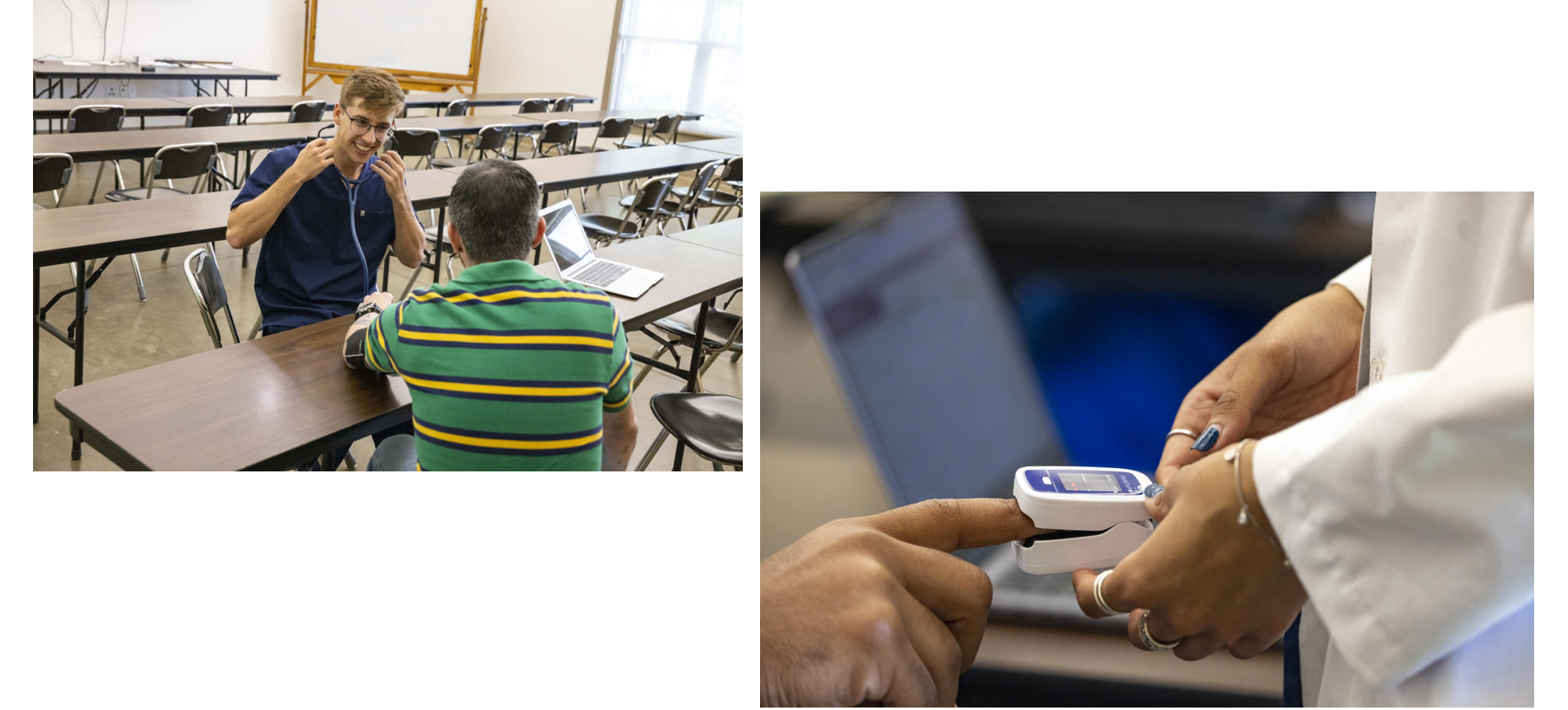
“They make the client feel valued. It’s more than getting a health need filled.”
When the team gets to the Potter’s House, an undergraduate student volunteer processes patients’ paperwork and helps prepare the medical students for their appointments. Then, medical students meet with patients, hear their concerns, and make assessments. Johnson provides a final evaluation and works with the medical students to get the patients the necessary treatments.
“They’re great, and they’re very thorough,” said Spencer Howell, a returning patient at the Potter’s House. “The last time, they diagnosed me to a T and got me fixed up in no time.”
By returning each Monday for two years, medical students observe how patients’ treatment progresses and develop relationships with those patients.
“The doctors that come here are really good at building relationships with the clients. So are the students,” said Matthew Turbeville, the Potter’s House community living assistant. “They make the client feel valued. It’s more than getting a health need filled. It’s relationships, and when you build relationships with people—whatever it is that you do—it will always grow and be successful.”
While teaching critical medical skills, the visits also expose students to patients’ diverse needs. Students’ observations also shape their community practice research project.
“The Potter’s House is a living environment, and the population is underserved. The majority of students have not seen what it is like to be underserved,” Johnson said. “But by being here, they see that the patients are not just ‘the underserved.’ They are human beings.”
With each medical student who works with underserved patients, there is another future doctor who understands the needs of individuals who have not had access to regular medical attention.
“A lot of these guys don’t have consistent healthcare, and I’ve seen how their past can shape their health,” said Khase Willis, a second-year medical student from Cartersville, who earned his undergraduate degree from UGA in 2022. “It makes me more cognizant of how patients’ life experiences can shape how they come into an appointment.”
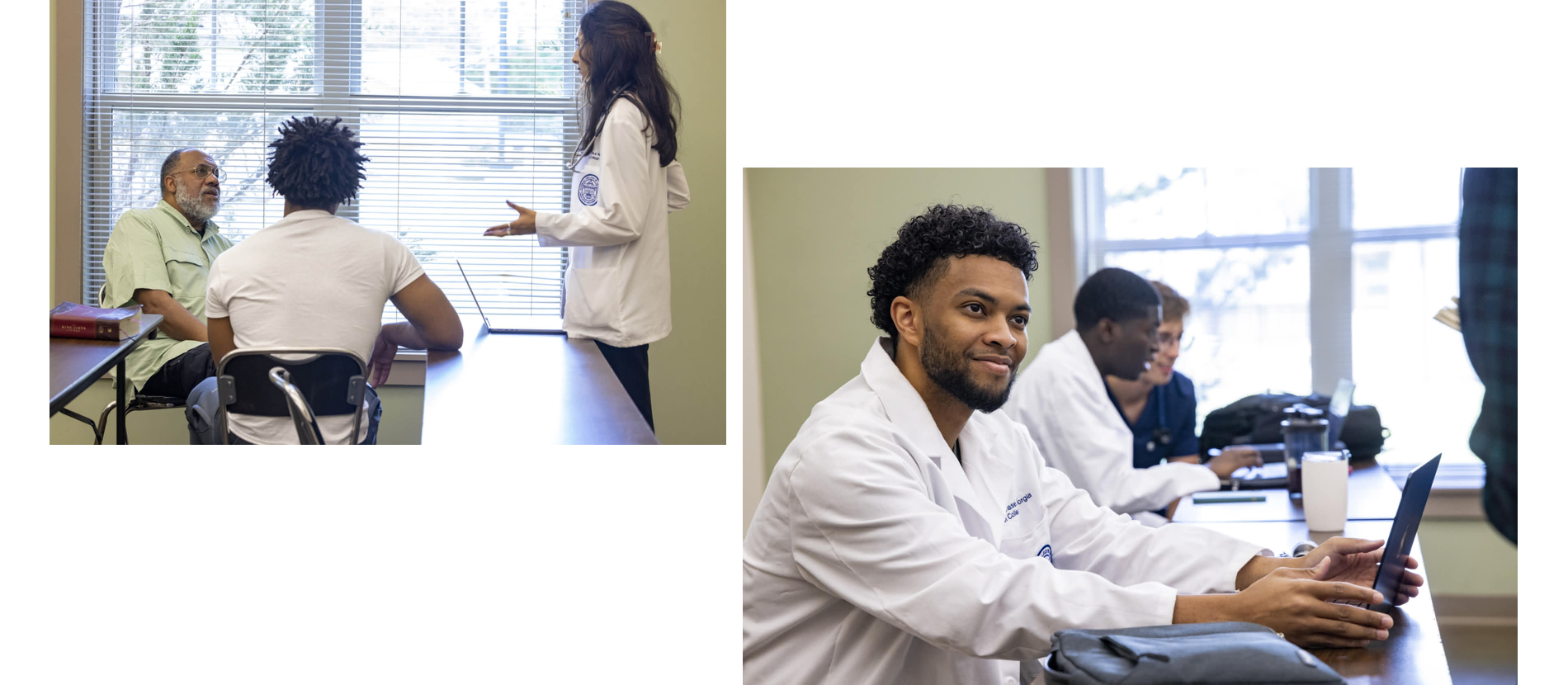
Creating a Cycle of Care
Similar visits providing medical care are replicated across the Athens-Clarke County community.
The Community and Population Health Athens Free Clinic program, founded by Associate Professor Dr. Suzanne Lester and now co-led with Dr. Kate Meixner and nurse Jeni Fitzpatrick, provides primary care to underserved patients at 12 additional locations. Spanning the Athens community, students see patients at Advantage Behavioral Health Systems, Bigger Vision of Athens, several schools in the Clarke County School District (CCSD) and Pinewoods Community.
Community Partners
- Acceptance Recovery Center
- Advantage Behavioral Health Systems
- Bigger Vision Community Shelter
- Cedar Shoals High School
- Clarke Central High School
- Clarke Middle Health Center
- Covenant Presbyterian Church
- Foothills Charter High School
- Pinewoods Community
- Nuci’s Space
- Potter’s House
- Project Safe
More than 300 medical students have provided free primary care under the supervision of 14 faculty physicians under the Athens Free Clinic service-learning umbrella.
“By going to different environments, it gives the students a real sense of where the patient is coming from,” Lester said. “And because we have such long-term partnerships, we have the capacity to have a long-term impact on the patients and the organizations.”
The program has made a tangible contribution to health across Athens. Since its inception, the Athens Free Clinic has provided more than $850,000 in free care at more than 3,450 patient visits. This service to the community was recognized by the Association of American Medical Colleges with its Star of Community Achievement award in 2023.
In particular, the Athens Free Clinic has partnered closely with CCSD to care for students, staff, faculty and their families. Medical students travel each week to Cedar Shoals High School, Clarke Central High School and Clarke Middle School to provide primary care to students, staff, faculty and family members.
“Our long-standing partnership with the Athens Free Clinic has been a wonderful resource for CCSD students and staff,” said Amy Roark, CCSD’s director of school nursing services. “We are grateful for the collaboration and look forward to their continued support. The integral relationship between health and education creates thriving schools, and it’s great to have partners who help us with our vision to sustain healthy, thriving schools.”
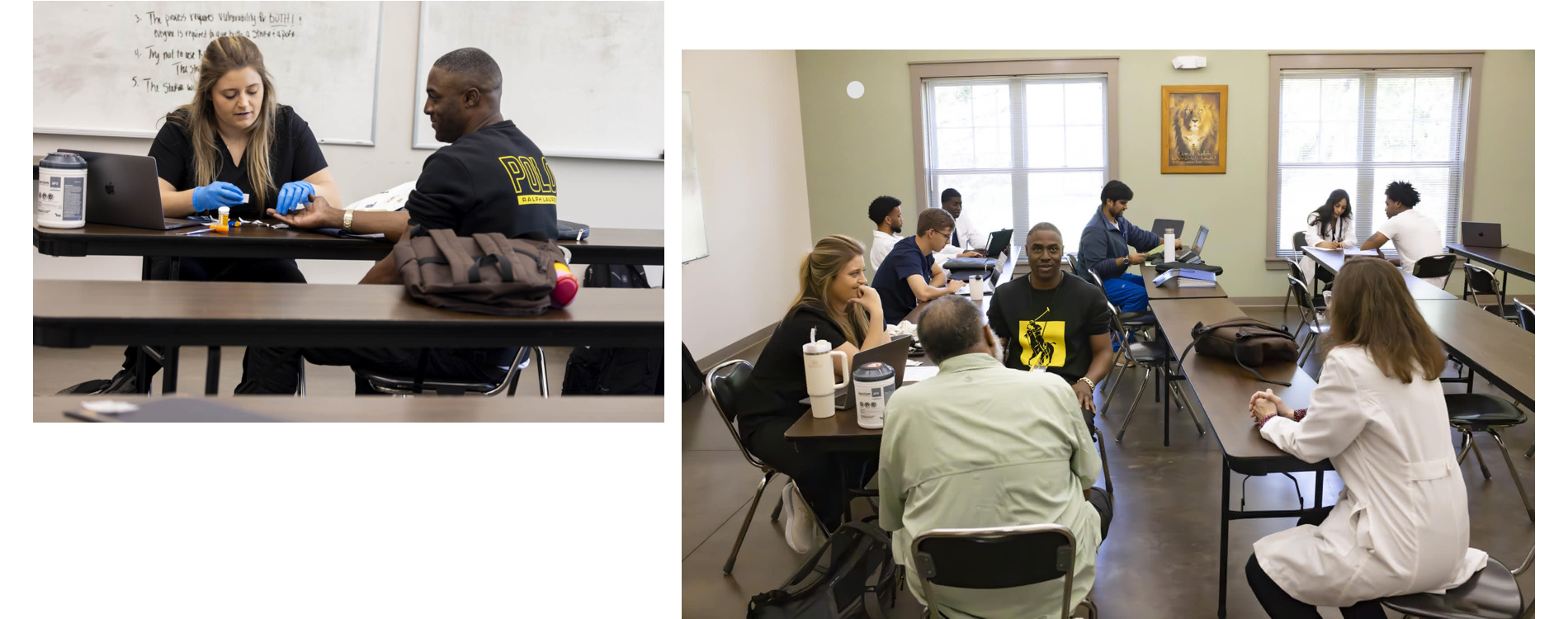
Expanding the Community of Care
It’s not just medical students who are serving the community through the Community and Population Health program. Forty UGA undergraduate students were selected from a competitive pool to be volunteer receptionists, where they greet patients and process paperwork at sites across Athens. Medical care is coordinated by a registered nurse, Jeni Fitzpatrick, who manages student and faculty placements and implemented electronic medical records to better track patients’ progress.
While supporting the program, the undergraduate students also gain hands-on learning experiences that prepare them for future careers.
One volunteer is Aditya Birla, a fourth-year student from Alpharetta who will enroll in medical school this fall. His work at Potter’s House showed him the importance of consistent primary care and how to connect with patients, while exposing him to medical education.
“I’ve worked under Dr. Johnson and Dr. Scott and the medical students,” Birla said. “They’ve been gracious with their mentorship. I’ve learned a lot about the process of becoming a physician and the process of going to medical school.”
Continuing the Cycle of Care
“This exposure of patients to medical students can be empowering on both sides”
As the school year concludes, the second-year students prepare to transition out of the Community and Population Health service-learning program and into their third-year rotations.
To continue caring for underserved patients in Athens, Lester and her colleagues are planning for a new class of first-year medical students to begin the course. When they arrive late this summer, the students will spend five weeks learning about critical issues and skills, including health equity, health promotion, the U.S. healthcare system, the processes of the Athens Free Clinic and how to conduct a medical exam. Then, Lester and the other faculty physicians will introduce students to the community sites where they will serve patients over the next two years.
New relationships between patients and medical students will begin, and the cycle of care continues.
“This exposure of patients to medical students can be empowering on both sides,” Lester said. “The patients know we will show up—and keep showing up. It makes them feel seen and heard, and it is informing students’ future practice.”

